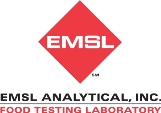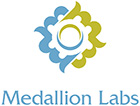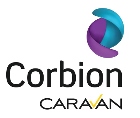|
|
DisplayTitle Regulation & Legislation Driven Change Webinar Series
Page Content
Broadcast Date: November 4, 2015
View On-Demand Webinar
Webinar SummaryLearn about the business impact of mycotoxins to the food supply chain. Mycotoxin levels are regulated by governmental bodies to protect human health, but the fungi that form the mycotoxins are ubiquitous. The grains industry from the field to the fork needs to be aware of the potential impact of mycotoxins and the best practices for management of grains to avoid them.
About the Presenter

|
Deirdre Ortiz has worked at the Kellogg Company for nearly 20 years. While there, she has led technical programs on a diverse set of topics including wheat breeding and quality, trans fat conversions, and mycotoxins. Prior to Kellogg, she received her MS and PhD from Kansas State University in the Department of Grain Science. Deirdre has served the AACCI community in many ways, most recently on the AACCI Board of Directors. She is the proud parent of 4 lovely daughters and grandmother of 5 and enjoys living the small town life of Battle Creek, MI. |
Broadcast Date: November 18, 2015
View On-Demand Webinar
Webinar SummaryBy now, you have heard and read that President Obama signed the Food Safety Modernization Act (FSMA) which updates the Food, Drugs and Cosmetics Act of 1938, as well as other regulations related to food safety. As a result, all FDA-registered US food manufacturing facilities, as well as facilities located in foreign countries and exporting to the US, will have to update their food safety and food defense programs to meet new FSMA requirements. But what does this really mean and what do you need to do meet these requirements? This fast-paced webinar will offer some practical suggestions for readiness.
About the Presenter

|
Judi Lazaro began her career in the food industry with Frito-Lay manufacturing then joined the AIB staff in 1990. With a BS Degree and a US Army Officer Commission, the food industry appealed due to the fast pace and ever-changing requirements and regulations. As a food safety auditor for AIB International, Judi audited and trained in a variety of manufacturing plants and distribution centers. In 2001, she began working in the management side of AIB International as Head of Audit Services, North America. Today, Judi serves AIB International as the Senior Director Client Development Global Accounts. |
Broadcast Date: January 13, 2016
View On-Demand Webinar
Webinar Summary
Sponsored By:
 Clean label is everywhere. Hardly a day goes by without another company announcing their intention to move closer to clean label via removing artificial ingredients (flavors, colors, preservatives, etc). Whether it is McDonalds moving to cage free eggs by 2017, Oreos moving away from artificial flavors, or Panera's No-No list, companies large and small are making the move. We will discuss different perspectives of the Clean Label Movement in our webinar. It is more common to be moving to transparency. For many consumers this is defined as ingredients they understand, those things found in their own pantry. Is it driven by millennials? Social media? The desire to eat natural? How will the move to clean label effect the product quality, shelf life and price? Ingredient companies are spending a lot of time and money to answer the call from CPG companies for clean label ingredients. Are these resources being rewarded with higher margins and sales volume? Is this a main stream phenomena or a niche' area? Does your company understand the long term effects of how millennials work, eat, and purchase consumable goods?
About the Presenter

|
Theresa Cogswell is a flour miller by education and a baker by profession, from ingredient development and ingredient sales to VP of R&D for Wonder Bread and Hostess Cake, Theresa has more than 35 years of experience in the baking industry. Theresa has owned her own consulting business, BakerCogs, Inc., for the past 8 years. She is the Past, and first woman, president of ASB, a member of AACCI, IFT, and the American Bakers Association. |
Broadcast Date: February 16, 2016
View On-Demand Webinar
Webinar Summary
Sponsored By:
 This webinar will provide a brief introduction to food allergies and celiac disease
and then focus on related key U.S. regulatory issues. Dr. Taylor will also provide a global review of priority allergenic foods and a prediction on future regulatory developments relating to food allergies and celiac disease.
About the Presenter

|
Steve L. Taylor, Ph.D. currently serves as Professor in the Department of Food Science & Technology and founder and Co-Director of the Food Allergy Research & Resource Program (FARRP) at the University of Nebraska. Dr. Taylor received his B.S. and M.S. degrees in food science and technology from Oregon State University and his Ph.D. in biochemistry from the University of California - Davis. Dr. Taylor maintains an active research program in the area of food allergies. Dr. Taylor initiated his professional interest in food allergies and sensitivities in 1980. His primary research interests involve the development of methods for the detection of residues of allergenic foods, the determination of the minimal eliciting doses for specific allergenic foods, the assessment of the allergenicity of ingredients derived from allergenic sources, and the assessment of the allergenicity of foods produced through agricultural biotechnology. Dr. Taylor is heavily involved in outreach to the food industry on food allergies and sensitivities and has helped countless companies on a wide range of allergen-related topics. |
Broadcast Date: March 2, 2016
View On-Demand Webinar
Webinar Summary
Sponsored By:
 High-protein foods are increasingly desired by consumers and have been demonstrated to help satisfy an individual's feeling of hunger for a longer period of time than when consuming comparatively lower protein foods. The feeling of fullness that high-protein foods can give helps limit overconsumption of food and can help promote a healthy lifestyle. Further, a high-protein diet can support muscle growth and maintenance for active individuals. Given the nutritional and lifestyle benefits of a high-protein diet, manufacturers are providing increasing numbers of high-protein products to the consuming public. Before marketing these products, manufacturers must first quantify the amount of quality, digestible protein in each product to satisfy labeling requirements The current standard for measuring protein digestibility is a rat model which is used in combination with amino acid analysis to determine the Protein Digestibility Adjusted Amino-acid Score (PDCAAS). The PDCAAS method suffers from being very expensive and time consuming thus resulting in delayed product development timelines and over-usage of valuable protein ingredient to assure meeting minimum targets for labeling. Additionally, the use of an animal model is counter to many of the brand equities supporting environmentally conscious lifestyles. This presentation will review the regulatory requirements for making a protein claim on a food product, processing factors which impact protein quality and research on a new
in vitro enzyme digestion model which provides results linearly comparable to the traditional rat PDCAAS method (r-square = 0.96-.98). This new methodology allows for more rapid development of high-protein food products by reducing the cost and turnaround time of analyses required to determine if a new prototype meets targeted label claims without the need for animal testing. Additional cost savings are achieved by reducing the need for over fortification of a new food product.
About the Presenter

|
Dave Plank is the Senior Technical Manager for Medallion Labs and a Senior Research Fellow at the University of Minnesota. With over 35 years of research experience, his publications and patents in the field of protein chemistry have culminated in new insights for measurement of protein quality for human nutrition without the use of animal testing. Additionally, his research and patents have focused in the fields of dietary fiber, fats, and oils with focus on trans-fatty acid elimination, and acrylamide abatement. In his role at Medallion Labs, he advises a diverse clientele on food testing and risk mitigation. |
Broadcast Date: March 2, 2016
View On-Demand Webinar
Webinar SummaryThe FDA’s mandate to ban PHOs is catching the eye of bakery manufacturers and consumers alike. Companies may face reformulation challenges now, but adhering to the policy doesn’t have to be difficult. This webinar provides an overview of newly reformulated non-PHO emulsifiers that deliver drop-in ease while maintaining flavor, texture, quality, ease of handling and shelf stability.
Presenters


|
Jim Doucet, Manager, Emulsifier Technology Group and
Robert La Fleur, Application Manager, Breads and Rolls, Corbion Caravan
Sponsored By:
 |
|
